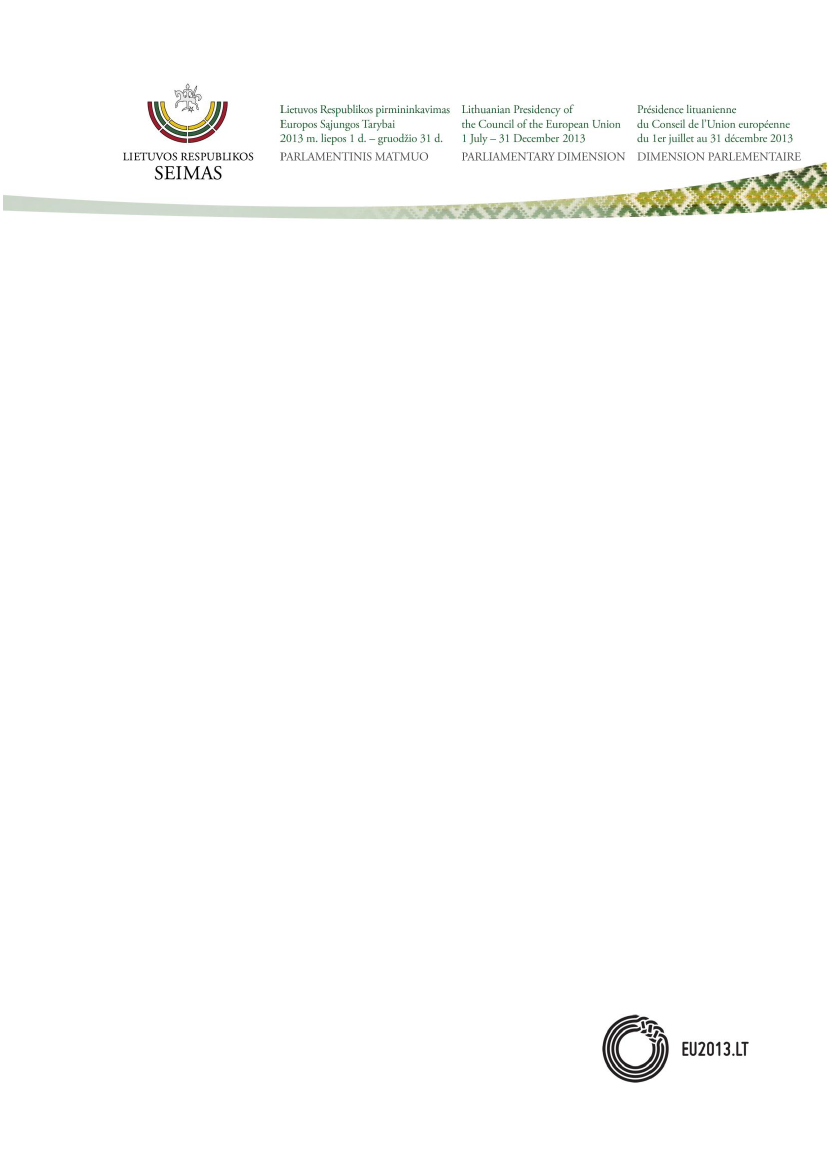
CONCLUSIONS OF THE L COSAC
Vilnius, 27–29 October 2013
1. 20th Bi-annual Report of COSAC
1.1 COSAC welcomes the 20th Bi-annual Report prepared by the COSAC Secretariat and
sincerely thanks the Secretariat for the excellent work. The Report provides useful
information on the means that could be used to ensure more active citizens’ engagement in
debating the EU future and participation in the 2014 European elections. It also discusses the
effectiveness of ensuring and enhancing democratic legitimacy and accountability, and
fruitful interparliamentary cooperation.
1.2 COSAC notes the challenge facing the COSAC Secretariat of many delayed replies to the
questionnaire. It calls on Parliaments to try to ensure more timely responses are provided to
aid the work of the Secretariat in preparing Bi-annual Reports and the work of the Presidency
Parliament in preparing for COSAC plenary meetings.
1.3. COSAC appreciates the practice introduced by the Irish Presidency to organise informal
sessions during the plenary meetings of COSAC. It recognises such sessions as a useful
means of exchanging views on procedures and practices relevant to parliamentary scrutiny
and on topical EU matters. COSAC thanks those involved in the sessions held in Vilnius and
calls on future Presidencies to continue working to that end by putting forward topics for
focused informal discussions.
2. Permanent Member of the COSAC Secretariat
2.1. COSAC recalls that the co-financing of the current Permanent Member and the office of
the COSAC Secretariat and website maintenance costs ends on 31 December 2013. The Irish
Presidency, in the first half of 2013, invited Parliaments to renew their commitment to the co-
financing agreement for the period from 1 January 2014 to 31 December 2015. So far 40
Chambers of 27 national Parliaments have signed and sent their letters of intent indicating that
they are willing to participate in the co-financing for the above stated period. COSAC
welcomes the fact that this number is above the minimum threshold, therefore the co-
financing of the Permanent Member and the office of the COSAC Secretariat and the costs of
website maintenance will continue. COSAC invites the remaining few Parliaments/Chambers
to submit letters of intent as soon as possible.
Gedimino pr. 53, LT-01109 Vilnius, LITHUANIA
Tel. + 370 5 239 6762 E-mail [email protected]